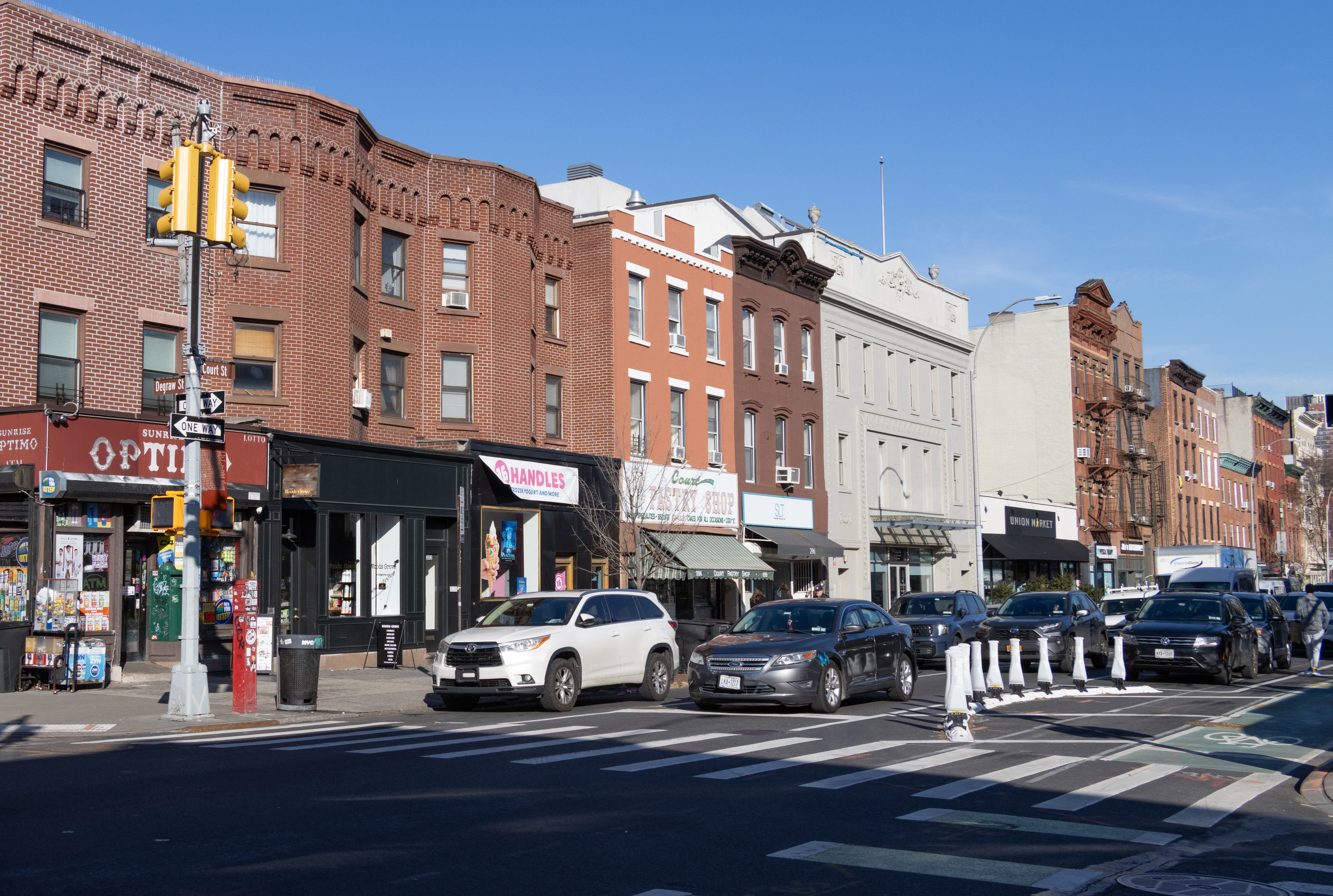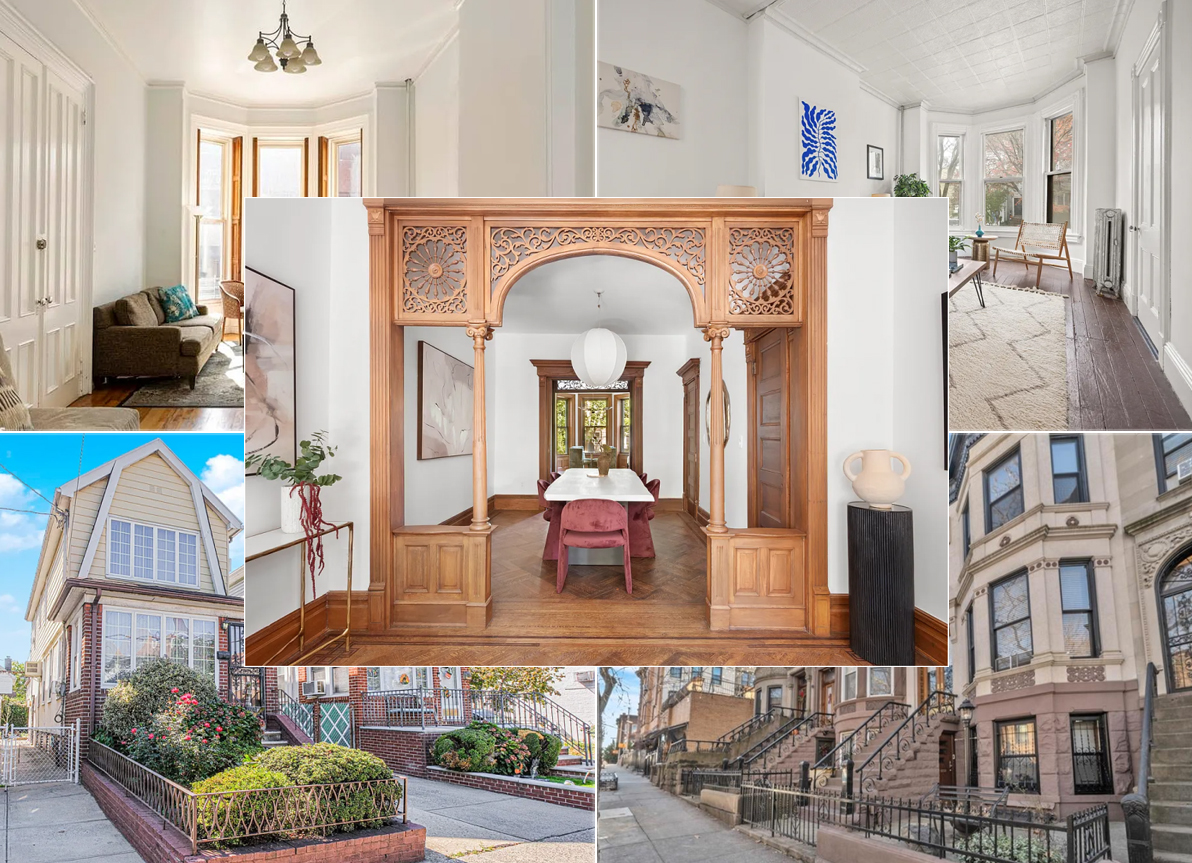Bushwicker Makes Top Ten Landlord List
July 5, 2006 — David Melendez owns a swath of dilapidated, vermin-infested, crime-ridden slums hidden on a forgotten block of Jefferson Street in Bushwick. The surrounding area is gentrifying, and just a few blocks away from Melendez’s buildings, new condos are selling for six figures. In contrast, rats rule the apartments of Melendez’s mostly Mexican…
July 5, 2006 — David Melendez owns a swath of dilapidated, vermin-infested, crime-ridden slums hidden on a forgotten block of Jefferson Street in Bushwick. The surrounding area is gentrifying, and just a few blocks away from Melendez’s buildings, new condos are selling for six figures. In contrast, rats rule the apartments of Melendez’s mostly Mexican and Ecuadorian tenants, and drug addicts get in through the unlocked doors, using the hallways in which to get high, while the tenants’ infants struggle to sleep through unheated winters. Melendez’s four buildings at 253, 255, 258, and 260 Jefferson have a total of 473 pending code violations. He appears to be in no rush to fix them: HPD has recently made 49 emergency repairs to those buildings and charged Melendez $23,029.
More on the link…
NYC’s 10 Worst Landlords [Village Voice]





Aren’t landlords part of the PUBLIC as well? What’s wrong with them having certain responsibilites under the law to their tenants for the privilege of owning property here and profiting off of it and them?
As has been pointed out, landlords buying pre-1974 buildings know going in that they are subject to stabilization. It’s just part of owning a building in NYC, renting in NYC, and being a memebr of the public in NYC. Yet I don’t see anyone being forced to be a landlord, nor do I see folks running away from buying and operating these buildings.
Ian-
It would only be landlords who bought their properties prior to 1974 (the last time I can find that new units were put under rent stabalization) who can be said to bear the financial burden. Anyone who bought after that bought with the knowledge that their investment was subject to rent control. So to remove it would actually be an unexpected windfall for them.
It’s no different than buying a house that’s on a toxic waste dump and then getting upset because your ground is polluted. It’s built into the price at the point of transfer. So no, private individuals (at least, most) are not subsidizing a public good. They are, rather, getting the proper return on the investment which they made.
Do they wish it was more? I’m sure. But are they really justly entitled to more? Not really.
Don’t get me wrong – I am radically against landlords like Melendez. I simply mean to point that it is strange that individuals, rather than society (in this case, New York City) should bear the financial burden of what is clearly a public good. The public should bear that burden.
The perverse incentives that these situations give rise to is incredibly well documented.
Ian,
In essence they do have tax breaks because Real Estate tax is based on value of prop – and value of property is based on rent roll.
And there are incentives – rents can be raised beyond usual rent increases for MCI – major capital improvements.
Also keep in mind that any new construction is not under any control/stabilization unless landlord seeks special tax breaks and voluntarilty enters system.
So I fail to see how deincentive to build new rentals if program (rent stab/control) is voluntary.
You are free to build what you want and charge what you want.
Interesting that everyone understands the public policy problem so well, but thinks the solution is to get rid of rent control/stabilization.
This would, indeed provide appropriate incentives for landlords like Melendez to make improvements, but at the cost of throwing our poorer neighbors onto the streets – a violation of a strong public policy interest.
The problem is that we are forcing Landlords to pay for a PUBLIC interest – providing cheap housing. The government’s job. Why not require the government to provide tax breaks or actuall subsidies to landlords that maintain rent stabilized properties?
One thing that’s very often overlooked in these discussions is the fact that many newcomers to NYC, whether from overseas or elsewhere in the U.S., are not paying regulated rents. Usually simply because they don’t know about the rent stabilization law (and landlords sure don’t tell them).
I had next door neighbors in Williamsburg – newcomers from Pennsylvania – who were paying $1,400/month for the pretty much the same apartment that I was paying $900 for. When I asked them what their legal rent was they gave me a very strange and quizzical look. They eventually showed me a one page “lease” document that specified the $1,400/month rent, gave the landlord the “right” to raise their rent at will and evict them if he wanted to, and was just a total joke.
I would imagine that this problem is even worse for people who don’t speak English and may be very afraid to fight the landlord and to go to the law and the courts.
I don’t believe for an instant that the “worst” lanlords, like Mr. Melendez, aren’t making a healthy profit off of their buildings. Often, as I described, by charging rents above the legal rents. The days of landlords being forced to not maintain or abandon buildings due to low rent rolls and plunging property values are long gone in the city. If guys like Melendez weren’t making a profit in the landlord business now, why wouldn’t they sell their buildings, which have without question increased in value enormously over what they paid for them?
Instead we get the same lowest investment possible for the highest possible return scenario that would be true whether or not there is such a thing as rent stabilization, and will continue in this crowded city as long as the authorities remain unable, or unwilling, to enforce the laws.
One of Melendez’ tenants in the story is paying $1200 a month to live in that hellhole. I hardly think that is chump change, and is a lot of money to come up with each month, especially selling food on the street.
While one could argue (although it is by no means a good excuse) that his run down building comes solely from not making enough money from his rent controlled tenants, if he is collecting $1200 from many of them, he’s doing well enough to fix the building. No one should have to live in those conditions.
Yesterday’s Brownstoner posts included a piece on LPC and the city citing people for failure to maintain. Where does that come in in these cases? In the case of a landlord like Melendez with several properties in the same condition, can’t he be made to sell at least one in order to fix up the others? Socialism – sure, but we are talking about substandard living conditions of fellow human beings. New York City shouldn’t be on par with the slums of Calcutta or the favelas of Rio.
Is Bushwick really going to gentrify?
Is it reflective of the area? There’s a lot of poorly maintained houses in Bushwick.